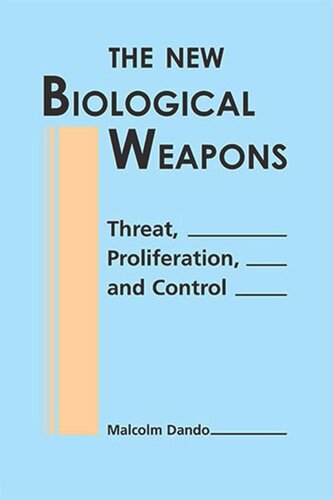

Most ebook files are in PDF format, so you can easily read them using various software such as Foxit Reader or directly on the Google Chrome browser.
Some ebook files are released by publishers in other formats such as .awz, .mobi, .epub, .fb2, etc. You may need to install specific software to read these formats on mobile/PC, such as Calibre.
Please read the tutorial at this link: https://ebookbell.com/faq
We offer FREE conversion to the popular formats you request; however, this may take some time. Therefore, right after payment, please email us, and we will try to provide the service as quickly as possible.
For some exceptional file formats or broken links (if any), please refrain from opening any disputes. Instead, email us first, and we will try to assist within a maximum of 6 hours.
EbookBell Team

4.4
32 reviewsCurrent revolutions in biotechnology and neuroscience are changing military technologies, necessitating dramatic reevaluations in arms regulatory regimes. This book assesses how these new technologies can be used in weapons systems—by governments and terrorists alike—and whether this frightening development can be brought under effective international control. Dando begins by surveying the existing (and arguably inadequate) control mechanisms for chemical and biological weapons. He then discusses how earlier generations of toxin and bioregulatory weapons have been developed by such states as Iraq, the former Soviet Union, and the U.S. and explains, in nontechnical terms, the scientific advances that have implications for new weapons technology. Considering how international law might be applied to constrain undesirable military developments without restricting technological developments for peaceful purposes, Dando concludes with a proposal for an integrated control regime that would link international agreements, national legislation, and trade regulations.